University of Bristol placements are offered to its students in the form of placement opportunities, career events, networking, and skill development programs. The university is ranked 7th in the UK and joint 49th in the world according to QS Graduate Employability Rankings, 2022. The career resources also include strong links with leading employers, and internships to gain industry experience.
Check Out: University of Bristol Rankings
According to High Fliers Research, 2022, University of Bristol graduates are 3rd most targeted after employees by The Times Top 100 UK graduate employers. University of Bristol graduates experience the engagement of around 350 renowned employers in the university campus recruitment program. The average salary of University of Bristol graduates is reportedly 38,000 GBP (37.87 lakhs INR).
Explore: University of Bristol Student Profile
The employment rate of University of Bristol graduates is 94%, reflecting the excellent placement opportunities of the university. It is consecutively among the top 10 universities targeted by top graduate employers for the last 3 years. PwC, Goldman Sachs, BP, Unilever, the BBC, HSBC, Rolls-Royce, Jaguar Land Rover, KPMG, Deloitte, and Atkins Business Groups are some of the popular employers recruiting University of Bristol graduates.
Also Check: Jobs in UK for International Students
University of Bristol Placement Highlights
| Total University Enrolment | 27,000+ |
| Graduate Employment Rate | 94% |
| QS Employability Ranking (UK) | 7th |
| QS Employability Ranking (World) | 49th |
| Internship Partnerships | 139 |
| Companies Actively Present on Campus | 336 |
| Research Collaborations | 55 leading companies |
| Annual Average Salary of Graduates | 38,000 GBP (37.87 lakhs INR) |
| Highest Paying Degree | Medicine and Dentistry (42,000 GBP or 41.82 lakhs INR) |
| Top Employers | PwC, Goldman Sachs, HSBC, Unilever, the BBC, BP, Rolls-Royce, Jaguar Land Rover, KPMG, Deloitte, |
University of Bristol Placements: Career Resources
The career services center of University of Bristol helps its students in exploring career options. Students can do their career planning by getting career ready courses, boosting their resume & CV, employment interview planning, and preparing job applications at the career center. It also offers internships and on-campus jobs to the students.
The career center assists its students in finding jobs after graduation through communication with a range of employers who are interested in Bristol university graduates. Below are some of the most helpful career resources provided by the university:
- University of Bristol helps its students in career exploration by making them efficient in networking, giving them labour market information & sector guides, and providing career ready courses & tips to build up their own market value.
- The Bristol PLUS Award of the university offers its students a framework to help them in structuring their career planning and skills development.
- The Engineering faculty of University of Bristol exhibits an Industrial Liaison Office (ILO). It offers industrial mentoring, summer internships, and lectures by engineers in industry to give insight of their future workplace. The ILO shares close links and partnerships with over 60 companies like Airbus, Toshiba, JLR, and ARUP among others. Chemistry students have been linked with companies like BP, Shell and Kodak.
- Students can learn how to write a CV through the guide provided by the university. They can also use the LinkedIn resources of the university to prepare their CV.
- The university provides a covering letter builder and other helpful resources so that students can build an impactful cover letter.
- Students can use the job application resources of the university for preparing general job applications and speculative applications.
- Numerous tools are available to students so that they can prepare for employment interviews and employment tests including the Interview360 tool, workshop or events, and assessment center tool.
University of Bristol Placements by Degree
Degrees earned from University of Bristol hold high value due to the prestige of the university. University of Bristol alumni & graduates holding a degree in master in management generally earn the highest salary of 60.42 lakhs INR. The reported average salaries of University of Bristol graduates according to their respective study levels are as follows:
| Degrees | Annual Average Salary (GBP) | Equivalent Salary for Indians (INR) |
|---|---|---|
| Bachelors | 60,000 | 59.84 lakhs |
| Bachelor of Arts | 55,000 | 54.85 lakhs |
| Masters | 66,000 | 65.82 lakhs |
| Masters in Management | 73,000 | 72.80 lakhs |
| PhD | 70,000 | 69.81 lakhs |
Also Explore: MBA Jobs in UK
A graphical representation of the average salary of University of Bristol graduates according to their respective degrees are as follows:

University of Bristol Placements by Profession
University of Bristol is ranked within the world's top 30 universities by the QS World University rankings. For this reason, university graduates get relevant placement opportunities and secure jobs in their desired fields. Some of the popular jobs pursued by University of Bristol graduates and their respective average salaries are given below:
| Professions | Annual Average Salary (GBP) | Equivalent Salary for Indians (INR) |
|---|---|---|
| Veterinary Surgeon | 30,000 | 29.91 lakhs |
| Software Developer | 30,600 | 30.51 lakhs |
| Project Manager | 30,900 | 30.80 lakhs |
| Mechanical Engineer | 32,500 | 32.40 lakhs |
| Structural Engineer | 32,500 | 32.40 lakhs |
| Financial Analyst | 37,000 | 36.88 lakhs |
| Software Engineer | 35,900 | 35.79 lakhs |
Explore: MS Jobs in the UK
A graphical comparison of the average salaries of University of Bristol graduates according to their respective professions is given below:

University of Bristol Placements: Internships & Job Experience
University of Bristol offers numerous resources and tools to its students to help them search for an internship or jobs tailored to their needs. University of Bristol internship programs include Student Services internship, Content Editor internship, and Student Inclusion internship. Students might need to stay away from the main campus of the university for study abroad, industrial placement or NHS clinical assistantships. Following are the tools made available to the university students:
- There are internship schemes specifically for Ph.D. students, 6-12 months placements, paid internships, non-paid internships, and other work experience opportunities made available for students. They can search and apply for them through:
- SME Internship Scheme
- Mycareer
- #10,000 Black Interns Program
- International students are also eligible to get internships & work-experience jobs. They can find job vacancies on mycareer and Student Circus.
- Graduates can also gain real-time work experience and do networking by using myopportunities.
Work While Study: Students can search for part-time job opportunities and guidance for part-time work after logging in to their university graduate account. They can also apply for the on-campus jobs. Undergraduate students are recommended to work up to 15 hours a week. However, graduate students are allowed to work for 20 hours per week. Students must keep enough time for their academic studies.
The Careers Service of University of Bristol provides extensive support in getting decent jobs, providing employer contact resources, and exploring career paths in the future. The university also provides students with access to paid, experience-oriented, and university-funded internships to earn workplace skills & work experience. The career center supports its students and graduates and attempts to make them competent enough to survive in the competitive market world. As a result, Bristol university students, graduates, as well as alumni go to earn high incomes and relevant job positions in the UK, as well as international companies.
Reviews
Most Popular Tags
10 Reviews Found
- Likes:
- I like that my course at the University of Bristol, had learned professors who had a lot of expertise in their subject and also an experience on how to teach the subject. They always linked theoretical knowledge with practical examples which helped to understand how is the theoretical knowledge linked with the practical implementations in real life.,
- There were sufficient assignments given to us, along with synchronous and asynchronous classes and materials to gain more knowledge in all aspects.,
- We were also provided with the names of books that were easily found in the library and e-books were also available for free from the library which helped a lot to get comprehensive details on the subject we were studying.,
- I also liked the curriculum of my course since all the courses were closely related to each other and all aspects of the communication networks were taught to us in quite detail.,
- The library of our university was also one of my favourite places to be in. It was quiet, with all the relevant books, and helpful staff, along with a canteen and enough study spaces to get all means to study in my own comfort zone. The career service of our university was also very good and quite accessible. You could go to them anytime in the day or by taking an appointment and show them your CV, and cover letter and get help in various soft skills such as presentation skills.,
- They had a Bristol Plus Award that persuaded me to do things outside of work and in turn I did multiple volunteering, practised my employment soft skills, and built them by putting in the extra effort.,
- There were also multiple events organized by the university with the societies of the university and all festivals were celebrated because of which I didn't miss home.
- Dislikes:
- There were language barriers sometimes where the professors were not able to be comprehensive about what they wanted to teach.,
- What I didn't like was mostly that it was quite expensive. Even printouts were not free and took some amount and I being a person who wants hard copies of stuff, was facing some difficulties.,
- There were not many practical sessions to get better practical exposure.
Placement:
The placements are generally off-campus but there is ample support from the university in building your CV, and cover letters, and providing information on what all companies are hiring on their website. There are also companies coming with their job fairs where we can go and enquire about the job opportunities they have.
The University of Bristol was my second choice in terms of what university I should choose since it was the second best university in my course as it is very famous for engineering. I liked that it is one of the red brick universities since it is very reputed to be in the red brick universities. Moreover, it was in Bristol, which is a very beautiful place to be in. The curriculum intrigued me since all the subjects were that I wanted to study. I have a B.Tech degree in Electronics and Communication and 3.5 years of experience as a software engineer in networking. Thus, I had an interest in getting theoretical knowledge in computer networks, and I saw my curriculum matching all courses I was expecting to learn to bridge the gap between the practical and theoretical expertise that I wanted to acquire. I thus accepted my offer of admission. My overall experience at the university was more than hopeful. I got to learn so much, including studies and extracurriculars, talking to various people from all parts of the world, and living with each other with fun and laughter. People in the university being so helpful, motivating, and persuading me to reach my goal helped me reach new heights. It has built confidence in me, and it feels like a dream coming true.
- Likes:
- It has a very reputable image and part of prestigious community plus it is a top 9th University in Bristol.
- Dislikes:
- One aspect of my college/university experience that I find particularly challenging is the lack of flexibility in the curriculum. Many of the courses are structured in a rigid manner, leaving little room for exploration or customization based on individual interests or career goals. This limited flexibility can be frustrating, especially for students who seek to delve deeper into specific subjects or pursue interdisciplinary studies. Additionally, the scheduling of classes and availability of elective courses often pose constraints, making it difficult to create a well-rounded educational experience. Furthermore, the bureaucratic processes within the institution can sometimes hinder efficient communication and problem-solving, leading to delays and inefficiencies in academic matters. Overall, while I appreciate the resources and opportunities provided by my college/university, I believe that greater flexibility and adaptability in the curriculum and administrative processes would greatly enhance the learning experience for students.
Placement:
There is no such placement cell in my University. We were asked to find jobs on our own, there was just a team which helped us to prepare our CVs and for our upcoming interviews.
Internship:
No, I did not do any internship.
- Likes:
- I chose UoB for its QS Ranking credibility and Alumni placement ratio.,
- The fact that it gave me access to the UK workforce & the economy, the course also allowed me to pursue a subject that I otherwise wouldn't have been able to in India as I needed a business degree to study business further.
- Dislikes:
- The course was not academically challenging enough and not much substantial learning came out of it. All lectures were online and only 2-3 seminars in person. The class wasn't too diverse either affecting the quality of commination as everyone's ability to communicate in English was not at par
Placement:
We get 2 years of placement support from university post graduation and concessions for further studies.
Internship:
I did have a placement project in my course but it was stripped because of COVID.
- Likes:
- I chose UoB for its QS Ranking credibility and Alumni placement ratio.,
- The fact that it gave me access to the UK workforce & the economy, the course also allowed me to pursue a subject that I otherwise wouldn't have been able to in India as I needed a business degree to study business further.
- Dislikes:
- The course was not academically challenging enough and not much substantial learning came out of it. All lectures were online and only 2-3 seminars in person. The class wasn't too diverse either affecting the quality of commination as everyone's ability to communicate in English was not at par
Placement:
We get 2 years of placement support from university post graduation and concessions for further studies.
Internship:
I did have a placement project in my course but it was stripped because of COVID.
Placement:
Seems good......will experience it after September. But many of our alumni are working in big MNC's so it seems there are good job opportunities here. Ps: there's no placement as in india, there's just a career service who will inform and help you regarding the job applications
Internship:
No
Placement:
the opportunites are quite high. the more initiatives one takes, the more opportunities come forward. the career guidance is very strong. and there are many research opportunities
The factors that drove me to choose the University of Bristol was the contents of my course. they all were of my interest. the worldwide ranking of the university was also a contributing factor. In addition the city of the university seemed extremely lively and welcoming. Bristol is green and a perfect student university. The university is also enriched with history and it is a privilege to study here.
Placement:
The MSc Public Health course prepares its graduates for work roles such as an analyst, epidemiologist, public health fellow and public health assistant (specifically for graduates with limited work experience). The curriculum is largely research-driven, and the dissertation module is meant to allow students to apply taught research methodology in medical journal article format. The dissertation could be published upon course completion, which allows graduates to further their research interests and careers. The public health course admin regularly emails students with public health vacancies. The careers session organised by the faculty helps students understand career prospects and network with working professionals in the field. The lecturers' backgrounds are varied, hence networking is facilitated in that manner. Since some work in Public Health England and the United Kingdom National Health Service, understanding the UK public health system becomes simpler for students. Currently, there is not a specific placement department for students/graduates, however, the Careers Service, students' personal tutors and the faculty can offer career guidance.
The University of Bristol is a top-10 UK university, and has established itself as an institution of research and training excellence. It is the fourth most targeted university by top UK employers. The MSc Public Health course offers an impressive set of modules which would help me work toward becoming a well rounded, responsible public health practitioner.Bristol is largely vibrant, green and a young city, which was another factor which influenced my decision to choose the university.
Placement:
The University sends relevant posts via email at the end of the course and the career services help as well.
I wanted to study Public Health and the University of Bristol was one of the highest ranked universities in the field and the University was also ranked in World's Top 100 Universities World and in the top 10 in the UK. The application process was simple as well.
Good in tops and had an amazing space, good teachers and close to my father, good reputation, best city to live in and many others, very nice when it comes to accommodation and other opportunities like internships.
Placement:
Most students opt for Phds but others go onto work in pharma orgs or scientific publication companies
Internship:
None in UK
Course Finder - Search from 50K+ courses
Popular Streams:
Similar Colleges
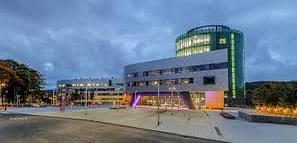

Robert Gordon University


University of Aberdeen


Aberystwyth University
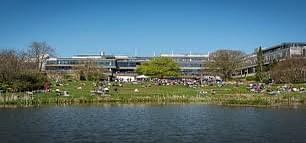

University of Bath


Cranfield University
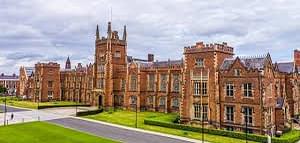

Queen's University Belfast


Ulster University
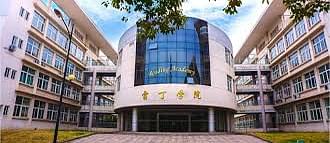

University of Reading
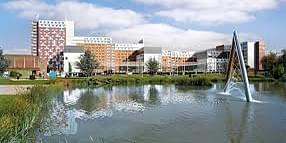














































Comments